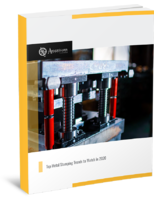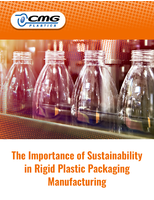Software facilitates FEA pre- and post-processing.
Share:
Press Release Summary:
Through integration with Dassault Systemes' V5 PLM platform, LMS Virtual.Lab Structures extends and complements CATIA V5 Analysis suite, and offers set of drivers to solvers such as MSC.Nastran, NX Nastran, Ansys, and Abaqus. It includes tools to modify meshes, check quality of meshes, define load application, define constraints, and edit mesh properties. Post-processing functionalities help visualize results using color-coded contours, hot spots, 2D curves, bar-chart displays, and deformation.
Original Press Release:
LMS Virtual.Lab Structures Delivers Integrated Pre- and Post-processing and Multi-solver Support for Structural Analysis in CATIA V5
Leuven, Belgium - May 27, 2005 - LMS, the engineering innovation company, today announced the introduction of LMS Virtual.Lab Structures. Through its seamless Integration with the Dassault Systèmes V5 PLM platfrom, LMS Virtual.Lab Structures extends and complements the CATIA V5 Analysis suite with a fully integrated environment for FEA pre- and post-processing. The new LMS Virtual.Lab solution offers a set of integrated drivers to industry-standard solvers such as MSC.Nastran, NX Nastran, Ansys and Abaqus. Overall, LMS Virtual.Lab Structures integrates the various process steps and simulation tools that would otherwise run separately and produce isolated results. This allows users to conveniently analyze loads and stresses on components and mechanical systems, to improve the quality and consistency of analysis results, and to accelerate engineering iterations.
LMS Virtual.lab Structures offers an extensive set of mesh-based pre-processing functionalities, which is entirely complementary and integrated with the CATIA V5 Analysis pre-processing functionality. LMS Virtual.lab Structures includes tools to easily modify meshes, check the quality of meshes, define load application, define constraints and edit mesh properties. These integrated FE mesh manipulation tools accelerate the preparation and modification of FE models. Drivers to industry-standard solvers enable users to set up, launch and post-process a variety of solution types, including static, modal, transient, harmonic and steady-state heat transfer analyses. Comprehensive post-processing functionalities are available to visualize results (including solver-specific output) in a range of formats, such as color-coded contours showing high stress/strain concentrations, hot spots, 2D curves, bar-chart displays, deformation, and animated displacements.
"LMS Virtual.Lab Structures takes the hassle out of FEA pre- and post-processing, allows companies to leverage their investment in multiple solvers, and provides an integrated environment for structural analysis within the CATIA V5 Analysis software suite," commented Willy Bakkers, Vice-President Marketing and General Manager CAE Division. "The ability to readily run through what-if scenarios allows engineers to quickly evaluate design alternatives and thereby enhances productivity and creativity. Working in an integrated system facilitates teamwork and data exchange between separate groups. These breakthrough functionalities enable companies to move towards simulation-based product development, an approach where up-front analysis guides engineers in optimizing the performance of their designs early in the cycle."
Web seminars on LMS Virtual.Lab Structures
LMS organizes a series of web seminars on LMS Virtual.Lab Structures. For more information and registration for one of these web seminars, please visit www.lmsintl.com
o June 10, 2005 (2:00 PM - Detroit time)
o June 15, 2005 (10:00 AM - Brussels time)
o June 28, 2005 (2:00 PM - Detroit time) - automotive and ground vehicle applications
o June 28, 2005 (10:00 AM - Brussels time) - automotive and ground vehicle applications
o July 5, 2005 (10:00 AM - Brussels time) - aerospace applications
o July 5, 2005 (2:00 PM - Detroit time) - aerospace applications
About LMS:
LMS is an engineering innovation partner for companies in the automotive, aerospace and other advanced manufacturing industries. LMS enables its customers to get better products faster to market, and to turn superior process efficiency to their strategic competitive advantage. LMS delivers a unique combination of virtual simulation software, testing systems, and engineering services. We are focused on the mission critical performance attributes in key manufacturing industries, including structural integrity, handling, safety, reliability, comfort and sound quality. Through our technology, people and over 25 years of experience, LMS has become the partner of choice for most of the leading discrete manufacturing companies worldwide. LMS, a Dassault Systèmes Gold Partner, is certified to ISO9001:2000 quality standards and operates through a network of subsidiaries and representatives in key locations around the world.




